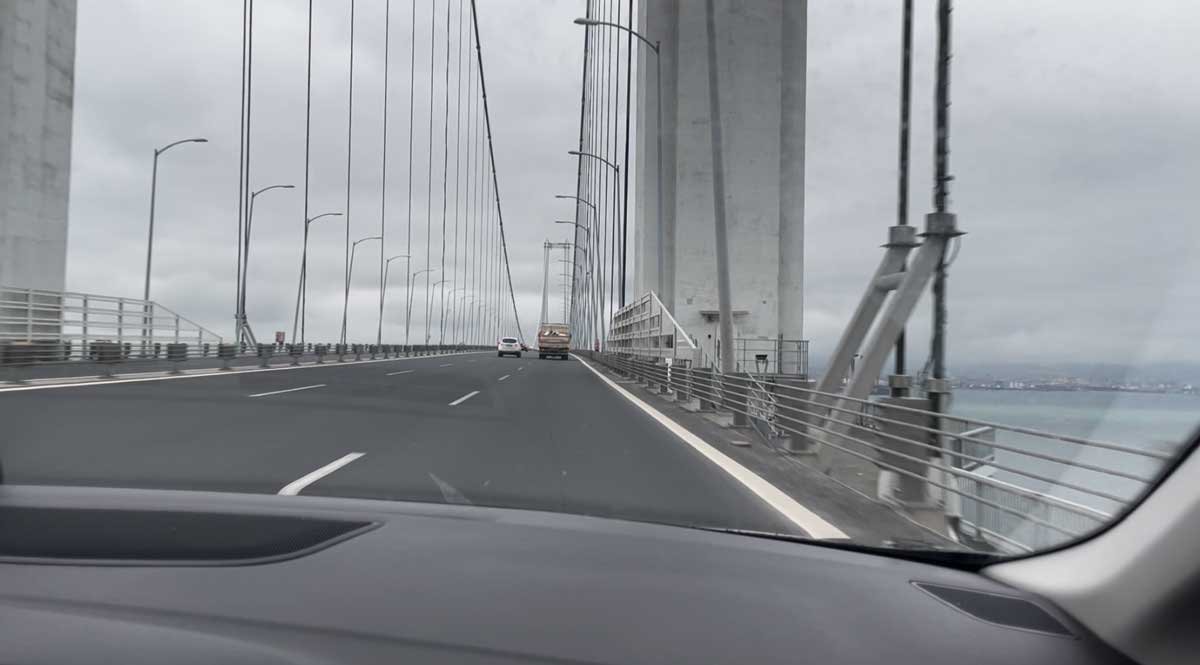One of the most adventurous and immersive ways to explore a country like Turkey is a road trip.
Cruising through the 5000 miles of coastline stretch and wading through the breathtaking mountainous landscape, you’ll be able to see more of what the country has to offer.
Driving a rented car gives you flexibility and allows you to travel at your own speed with no strict public transport timing.
But, is it safe to drive in Turkey?
Stick around to learn more about driving conditions, regulations, and tips in Turkey.
What are the road conditions in Turkey like?
Turkey holds diverse geographical landscapes. The region is primarily mountainous, with gorgeous coastal fringes, making for exquisite driving views.
You’ll experience all sorts of pathways, from long and winding ones going to Nemrut Dagi to the busy streets of Istanbul.
The most common road networks in Turkey are the village ones, spanning up to an extensive 125,000 miles. Other roads include national, secondary, or regional roads and motorways – we found the main motorways to be smooth, well-maintained and wide.
Overall, Turkey’s road conditions are safe for the most part. If you find yourself driving on an elevated and zig-zaggy road, take extra caution, especially if it’s snowing.
How safe is it to drive in Turkey?
Now, let’s talk numbers. In 2021, over 186,353 accidents occurred, injuring around 274,615 people. In around 87% of these accidents, the drivers are usually the ones at fault.
Approximately 49.4% of these accidents were car-related, while the others were motorcycles, buses, trucks, etc. In addition, the World Health Organization reports that 12.3 fatal accidents occur for every 100,000 citizens annually.
To put things into perspective, that’s a bit less than North America but more than Europe’s 9.3 index.
What to expect when driving in Turkey
Before renting your car and hitting the road, here are some factors worth considering, including speed limits and road traffic signs.
Speed limits
If you look around while driving, you’ll notice that the speeding limits are displayed in kilometers per hour.
You can expect to find drivers around you speeding above the limit or driving haphazardly, so you may have to drive defensively and keep focused on your path. There are speeding cameras riddled on the road which will snap your license plate if you exceed the speed limit.
It’ll send a fine to your car’s rental company, and you’ll be stuck with a 951 TL to 4,064 TL, depending on how fast you were going above the speed limit.
Typically, speed limits vary across each road network. For instance, if you’re driving in the city or town, don’t go above 50 km/hr. Meanwhile, with highways, you can sometimes go as fast as 130 km/hr.
Road signs
Most road signs in Turkey are usually displayed in Turkish and English. Plus, the areas are written in English letters that won’t be challenging to decipher.
One of the best parts about the Turkish road signs is that they’re color-coded. Signs leading to cities and towns are blue, whereas tourist sites and historical monuments are brown.
Road regulations
The first thing you’ll want to familiarize yourself with before hitting the road is the regulations. Traffic rules in Turkey aren’t so different from other countries globally. For example, you can’t drink and drive.
Your blood alcohol limit should be 0%, which is comparatively stricter than Europe’s 0.05%.
Aside from that, here are some other rules to consider:
- Don’t drive while using your mobile phone.
- Children under ten years old can’t sit in the front seat.
- Children under 77 lbs must be seated in a car seat.
- You must carry car insurance.
- Everyone in the car must wear seat belts.
The last rule is particularly crucial because if you get into an accident, and you aren’t wearing your seat belt, you risk losing the insurance.
Car rentals
When browsing for a rental company, you’ll find that most of them are condensed in major towns like Istanbul, train stations, local airports, and other travel hubs.
Prices tend to vary significantly when searching for a car. It primarily depends on which season you travel in with December usually offering the lowest fares and July the opposite.
For this reason, you can use applications like Expedia to ensure that you get the best deal when renting a car.
Tips when driving in Turkey
In addition to all the factors mentioned above, here are some tips to consider as well.
- Try to avoid driving at night, particularly in rural areas with larger trucks passing by.
- Lock your car and close your windows when driving in the city area to avoid theft.
- Keep your driving documentation ready with you.
- Drive on the right side of the road and overtake cars from the left side.
Is it safe to drive in Turkey? In short, once you’re aware of the road regulations and speed limits, you’ll be fine.
The road conditions can be challenging near mountainous landscapes. Aside from that, the city and town roads are easier to navigate, thanks to the easy-to-read road signs, and speed limit instructions.
The best part about driving in Turkey is the wide availability of car rental companies. Just be sure to pre-pay for insurance to cover any potential scratches or accidents.

I’m a writer and graphic designer currently living in Turkey with my family. I enjoy learning language, great food (chicken kebab is a favourite at the moment) and experiencing places less-traveled.





